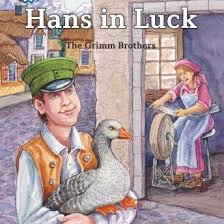What I know about finances can be written on the back of a postage stamp with a shaving brush. I know nothing about stocks, bonds, hedge funds, and derivatives—whatever those are. Indeed, I have the Midas Touch when it comes to speculating: everything I invest in turns into a muffler.
But I was pleased recently to learn a new word, permabear, an investor who believes that the market will inevitably and inexorably plummet. Maybe not today, maybe not tomorrow, but soon, and for the rest of your life. A permabear therefore stays out of the market, keeping their money under the metaphorical mattress. I have no data with which to back up the following assumption, but my guess is that folks who build bomb shelters and stockpile water, rice, and weapons are more likely to be permabears.
The problem with being a complete and utter permabear is that if you’re right and the market does indeed go to heck in a hand basket, then you end up in a bad financial position along with everyone else—jumping out of windows, cashing in your retirement account and taking the cash in your wheelbarrow to the bakery for a loaf of bread.
If the permabear is wrong and the market totters along without implosion or–gasp!–goes up, then the permabear has missed out on keeping up with inflation and their money is worth less. There goes that dream of retiring at age 82. Decades hence, the permabear can’t buy a $47 box of Frosted Flakes with 2024 dollars.
Lots of folks are permabears with their children, believing that the kids aren’t going to amount to anything. When I was your age—a disapproving father squawks at his adolescent son—I was 27 years old already. Again, there’s no good ending. Either the kids continue to not live up to expectations and who wants that? Or the kids do well in which case permabear parenting is just hopelessly wrong.
Speaking of inept parenting, notice how the more noise a parent makes, the less oxygen there is for their child to use. The occasional family origin story has its place, we emigrated with the clothes on our backs, a family photograph, and The Karate Monkey Joke sewed into the lining of your grandmother’s skirt. But incessant reminders of how hard life was don’t allow children to find their own voice, articulate their own experiences, believe that their lives also have meaning. “We had it tough” should make kids appreciative. Instead, a repeated narrative of deprivation might make a child feel that their experience is neither real nor important.
Kids have been tuning out for generations. Could part of the reason that kids reject our narrative be that they’ve heard it so loudly and so frequently? Could they be tired of quotidian reminders of how they should think like us, feel like us, be like us?
Comparisons are odious because thinking somebody else’s child is always greener doesn’t just make the parent feel miserable. Accepting your kid for who she is—imperfections, limitations, and all–makes for an easier life, both yours and your child’s.
At the risk of noting a politically volatile issue, while income disparity is certainly morally repugnant, the least of us in this country in 2024 has access to miraculous medicine, technology, and opportunity for which the wealthiest in midlevel times could only dream. The likelihood that your child or your partner will die in childbirth is, to a first approximation, zero. Whereas in Shakespeare’s time, children weren’t baptized until their first birthday because there was every possibility that the baby would succumb to a host of diseases for which Londoners had neither names nor understanding, an infectious model of disease some two and a half centuries in the future.
If you must look over the fence into the life of your neighbor’s child, at least consider using the lens of Hans in Luck from 1812. As you remember from you parent reading to you or from your telling the story to your child, Hans trades his wages—paid in silver in those days–for a horse. He swaps the horse for a cow, the cow for a goose, the goose for a stone, and is pleased when the stone sinks into the river. Hans ends up with nothing. You are doing so much better with your child than Hans was.
Was Hans the precursor of modern day permabears? Jacob and Wilhelm Grimm didn’t say. The brothers mention just how bad parent child relations could get—stepmothers sending their kids off to get lost in the woods, princesses pricking their fingers and snoozing for a hundred years–enough misery to keep generations of children trembling under the covers long past bedtime.
If you must compare your situation with the seven-foot-tall, impossibly attractive, polyglot, valedictorian next door, think not of the student council president, star quarterback, voted most popular, handsome kid. Consider instead the severely autistic 17-year-old, still in diapers who hits himself in the head hard enough to bleed all over the car on the way to the facility, the young adult who needs round-the-clock care, the kid who will never smile, say thank you, or go to the bathroom by himself.
A healthy child, even one without an A in algebra, is as good as it gets.
Be grateful for what you have–a neurotypical child with ten fingers and ten toes—which, if you remember, was exactly what you promised was all you would ever ask for when the contractions started coming every three minutes.
Again, I don’t know anything about investing. But I’m convinced that permabear parenting is a one-way ticket to the intersection of Disappointment Street and Missed Opportunity Avenue.
Now stop reading this lengthy blog post and go take your kids to the park and throw a ball with them. Because whatever the market does, whatever and where ever the kids end up, this day will not come again.









